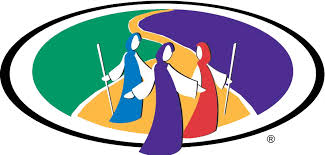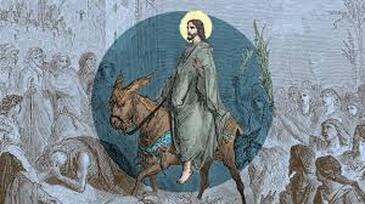
Once upon a time a queen decided to set aside a special day to honor her greatest subject. When the big day arrived, there was a large gathering in the palace courtyard. Three finalists were brought forward, and from these three, the queen would select the winner.
The first person presented was a wealthy philanthropist. The queen was told that this man was highly deserving of the honor because of his humanitarian efforts. He had given much of his wealth to the poor.
The second person was a celebrated physician. The queen was told that this doctor was highly deserving of the honor because she had rendered faithful and dedicated service to the sick for many years.
The third presented was an elderly woman. Everyone was quite surprised to see her there, because her manner was quite humble, as was her dress. She hardly looked the part of someone who would be honored as the greatest subject in the kingdom. What chance could she possibly have, when compared to the other three, who had accomplished so much?
The queen was intrigued, to say the least, and somewhat puzzled by her presence. The queen asked who she was. The answer came: "You see the philanthropist and the doctor? Well, she was their teacher!"
What does it take to create a distinguished life – a life that stands out? A life that is filled to the fullest with grace, faith and beauty? A good life, not necessarily a doctor, a philanthropist or a teacher. A life that is simply lived well and reaches out to others. We rarely reach these goals by ourselves. We need the guidance of others; those teachers in our lives who point us in the right direction and help bring out the best in us.
To reach the best we are called to live, we must embark on a journey of comprehensive moral or spiritual development -- to understand what is right and wrong, what God wants for us, how to serve others with gifts we have. It is not a journey we can make alone. Cleopas and his companion, in our reading today without realizing it, were being guided by Jesus on the most important journey of their life.
The journey to Emmaus that we heard today a journey of seven miles – from Jerusalem to Emmaus, just northwest of the Jewish capital. A disciple named Cleopas – never heard from before—and an unnamed companion – some presume to be his wife, are making the trek to Emmaus. They are never mentioned again in the Bible – and neither is the village of Emmaus. However, the journey of getting to Emmaus is a high point in the Easter narrative.
So, Cleopas and his wife begin their journey. It is the evening of the resurrection, and they are discussing the murder of Jesus, and the report from the women who went to the tomb and saw a vision of angels who proclaimed that Jesus was risen. As they are talking, Jesus comes alongside them, yet in their sorrow and confusion they do not recognize him. It is hard for us to see the Lord walking with us when we are filled with despair, agitation and anxiety. Still, Jesus is there, and he encourages the conversation. What are you discussing?
At this point Jesus begins to discuss the scriptures –the stories of Moses on down through the prophets to the present. What a conversation that must have been – Jesus interpreting the scriptures over a several hour walk! Think of it – a 2-3 hour bible study, led by Jesus! Jesus does what every good teacher does. He lays out the story. He helps his disciples connect the dots. He touches their sad and dejected hearts. Jesus reframes the scriptures so they can understand the ministry and mission of Jesus, his suffering, death and resurrection in light of the bigger picture of faith. Jesus inspires them so that even after this long walk and it is getting late, they strenuously implore Jesus to stay with them longer.
In their home, using language that is reminiscent of the last supper and the feeding of the five thousand, Jesus becomes host of the table, break and blesses bread – then and only then are their eyes opened to their guest’s true identity. In that discovery of Jesus’ identity, the Lord vanishes from their sight. Were not our hearts burning with us? They exclaimed in wonder. They could not contain with happened. They immediately got up, made that return two-hour journey to Jerusalem to proclaim the good news to the disciples.
This is what we are called to, to enter the story of Jesus Christ. To have Jesus enter our hearts and weave our life story into his- so that our hearts burn within us and we got to stop what we are doing and go out of our way to share it? It is a journey that combines the knowledge of scripture with love, friendship and community building. Because inside of each of us, whether we know it or not, there is a hunger to know what the purpose is of our lives, to have our eyes opened to the divine within us and around us. Jesus is the divine teacher on this road.
The Emmaus journey is a reminder to us of how God leads us throughout our lives, through unknown teachers and guides, so we can learn to see life and our challenges through a spiritual lens. There is a saying, “When we are ready, the teacher appears.” So this happens every day – in the manifold ways Jesus would touch us: through the scriptures, people around us, all the elements of creation, working in our hearts to bring about a shift, to help us realize the story is not done, a new chapter is starting, and God is still editing our lives – and our hearts warm over and over again, and our eyes are opened over and over again as Jesus leads us to grow in spiritual maturity.
In the last two months the road we have traveled have taken us on an unexpected, dangerous, detour due to COVID-19. Our lives are in upheaval. Our safety is daily in question. Our collective life, our life as a church has been flipped upside down. Like Cleopas and his wife we lament what is gone. Let us pause and see the connection: The questions and conversation, the transformation of sadness to joy. Jesus is traveling these uncharted waters with us. He is helping us assess our lives, examine them through the scriptures, to see the hope of resurrection and the triumph of hope. Jesus is leading us into the 21st century, that by the power of the Holy Spirit, we can become a new church, a more connected church, a people that walks together, learns together, break bread together and as a result discover Jesus in their midst.
Wherever we are on the road, even in the midst of confusion and questions or doubt, know that the Teacher is there. Walk the journey and let the Teacher speak. Let your hearts burn within, for your story is being revised by the divine author and guide, and we will be sent forth to tell the story, to make a difference – to forge a journey so our life that will stand out – and we too will become mighty teachers, and our love and witness walk alongside the bereft, the searching, and together becomes transformed by the holy spirit as we study the ancient sacred stories and find Jesus in the breaking of the bread. Amen.



 RSS Feed
RSS Feed